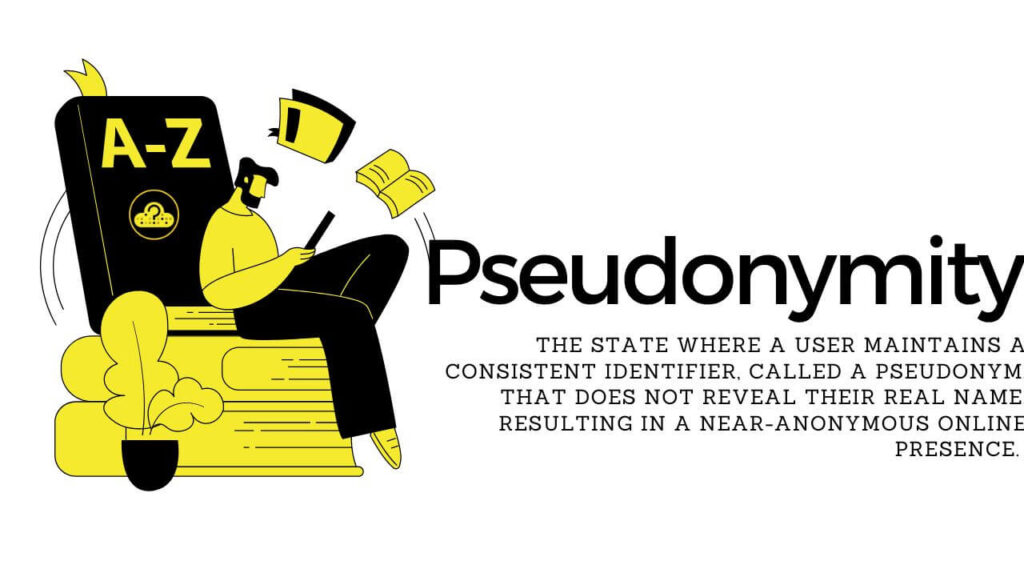What Is Pseudonymity?
Pseudonymity refers to the state where a user maintains a consistent identifier, called a pseudonym, that does not reveal their real name, resulting in a near-anonymous online presence. In pseudonymous systems, only site administrators have access to the users’ actual identities, while interactions between users occur in a generally anonymous manner. This enables users to communicate with each other without fully disclosing their true personal details, safeguarding a level of privacy and discretion in their online interactions.
- Short Definition:
-

- Extended Definition:
-
Pseudonymity is a concept commonly employed in the digital realm, where individuals can participate in online activities, such as posting content, commenting, or making transactions, without revealing their real identity. Instead, they use a pseudonym or a fictitious name to maintain a degree of anonymity. Unlike complete anonymity, where no identifiable information is provided, pseudonymity allows people to have a recognizable, consistent identity without exposing their true personal details.
This practice is often relevant in scenarios where users want to protect their privacy, express themselves freely, or avoid potential repercussions associated with disclosing their real identities. Pseudonymous interactions can occur on social media platforms, online forums, and various websites that offer user-generated content.
Creating a More Private Online Experience: Pseudonymity and VPNs
One of the common tools used in conjunction with pseudonymity is a Virtual Private Network (VPN). A VPN is a service that encrypts and routes a user’s internet traffic through a server located in a different geographic location. By doing so, a VPN hides the user’s IP address, which is a unique identifier associated with their internet connection.
When pseudonymity is combined with a VPN, it further enhances online privacy and security. The VPN’s encryption prevents third parties, such as Internet Service Providers (ISPs) or hackers, from monitoring the user’s online activities and linking them directly to their real identity. The user can then assume a pseudonymous identity and access online services or content without revealing their true IP address or location.
While pseudonymity and VPNs, however, can provide a layer of privacy, they are not foolproof methods of complete anonymity. Persistent or sophisticated adversaries might still be able to correlate activities or identify users through other means, especially if users inadvertently reveal personal information while operating under a pseudonym.
Therefore, pseudonymity and VPNs are just some of the tools available for safeguarding privacy, and users should exercise caution and be mindful of the information they share online.
Pseudonymity refers to the practice of using a fictitious or anonymous identity to interact or transact in various online activities, thereby concealing one’s true identity. It allows individuals to maintain a level of privacy while engaging in digital communications or services.
For more definitions, check out our dedicated Definitions List.







